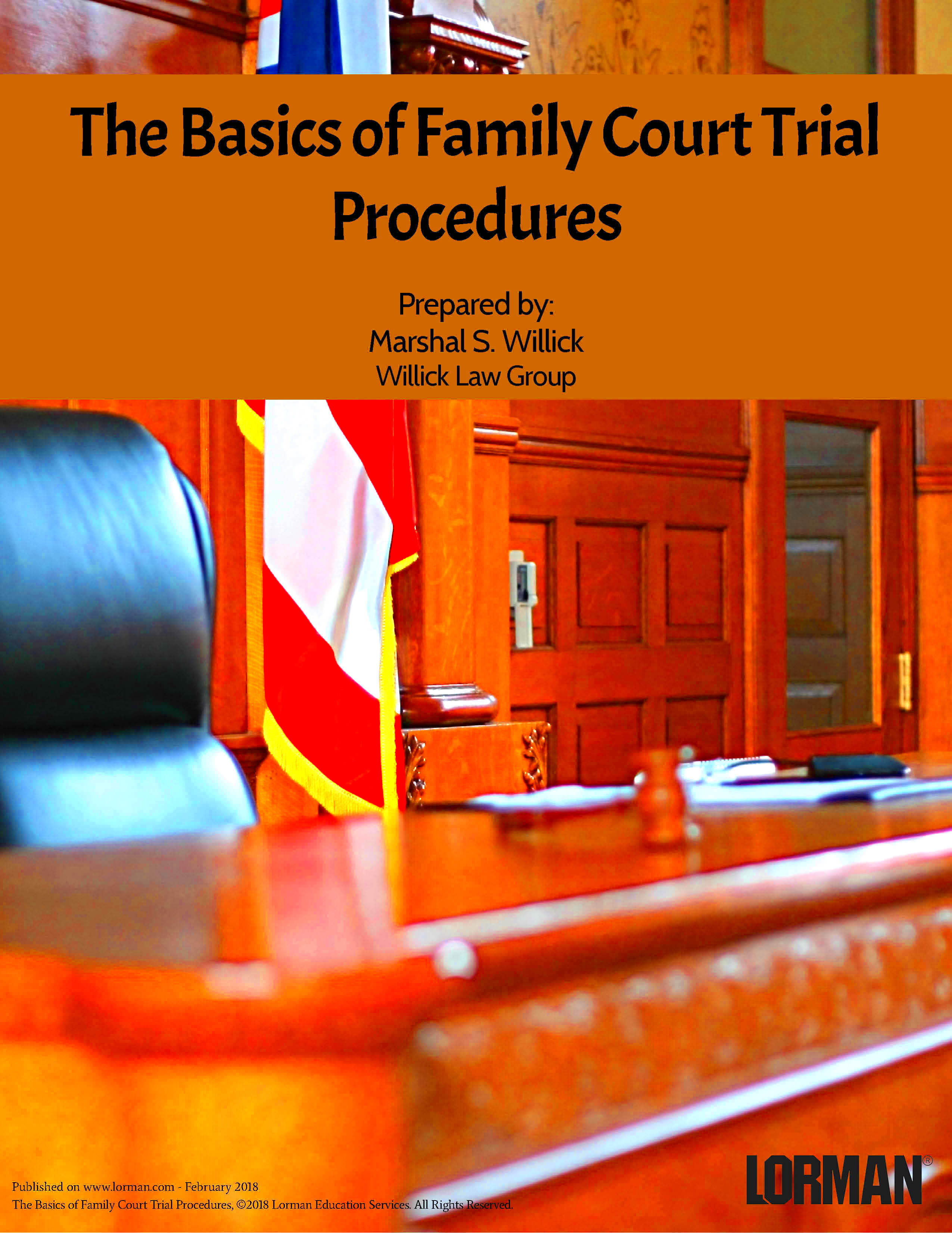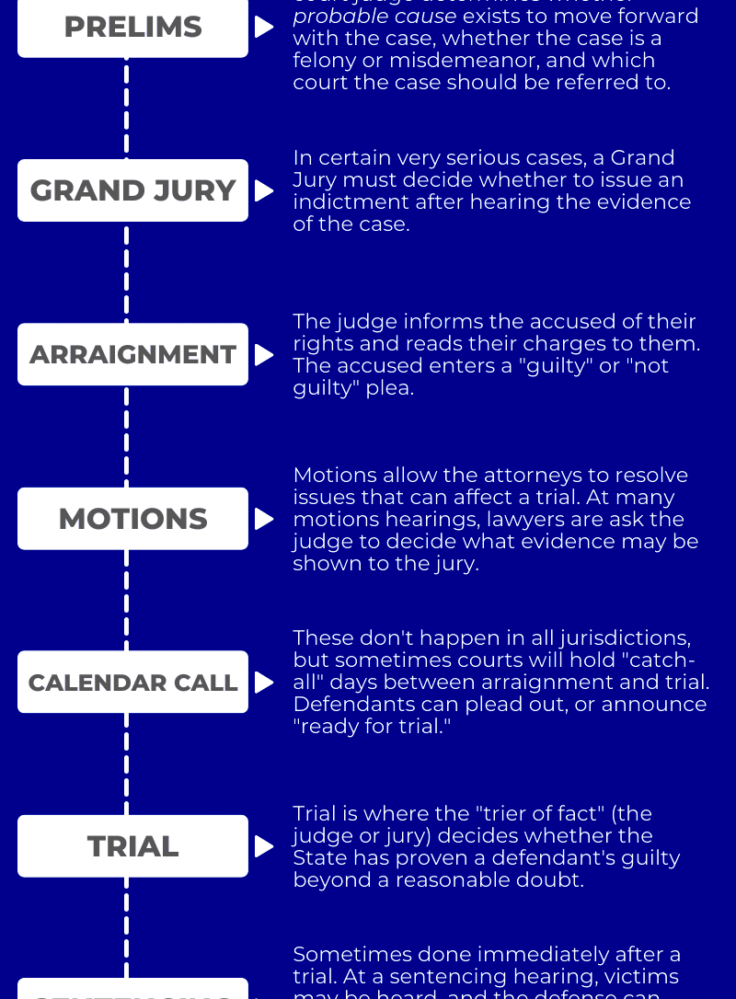Georgia Family Court Procedures Explained
In Georgia, family law cases are managed by the state’s Superior Courts, which have been assigned responsibilities such as divorce, child custody, child support and other related domestic issues. The main aim of these courts is to obtain fair resolutions that focus on ensuring families’ wellbeing, especially that of their children. Courts are meant to bring order and structure to any chaos, but particularly when you are facing a divorce or custody battles, knowing about court processes becomes very important. Thus, although structured and organized, the family court process in Georgia can be daunting for first-timers dealing with legal matters.
How Family Cases Are Filed in Georgia

It is necessary to file for family cases in the state of Georgia when one needs to begin resolving legal matters like divorce, child custody or support. Here’s a basic guide on the steps:
- Filing a Petition: To initiate a family law case, the individual must file a petition at the Superior Court in the county where they or their spouse resides. This petition outlines the basic information about the case, whether it’s a divorce, custody issue, or modification request.
- Serving the Other Party: After filing, the petitioner must serve the other party (respondent) with the necessary paperwork. This ensures that both parties are aware of the case and have the opportunity to respond.
- Response from the Other Party: Once served, the respondent has 30 days to file an answer. If they fail to do so, the petitioner may request a default judgment.
- Temporary Orders: In urgent situations, either party can request temporary orders for custody, support, or restraining actions until the case is fully resolved.
While appearing simple in principle, this process may turn surface due to specific problems involved. Having a good legal advice is vital to make sure that things are properly done.
Understanding Court Procedures for Divorce and Custody
Going through a divorce and child custody case in Georgia can be overwhelming, particularly when you are filled with emotions. Below is an overview of the procedures involved:
| Step | Description |
|---|---|
| Pleading Stage | This is where both parties file their initial petitions and responses. In divorce cases, this includes documents such as the divorce petition, financial affidavits, and any requests for temporary orders. |
| Discovery Phase | Both parties exchange documents and information. This often includes financial disclosures, child custody evaluations, and witness statements. |
| Mediation | Georgia courts often encourage mediation as a way for both parties to reach an agreement without the need for a lengthy trial. Mediation is less formal, and a neutral mediator helps guide the discussion. |
| Trial | If mediation fails, the case goes to trial. Both parties present their evidence and argue their case before a judge, who then makes a final ruling on issues like asset division and child custody. |
| Post-Judgment Actions | Even after the trial, additional actions may be needed, such as enforcing child support orders or modifying custody arrangements due to changed circumstances. |
At every level, comprehending these processes might help stay ready and decrease the anxiety that comes with family court trials.
How Mediation and Settlement Work in Georgia Family Courts
In Georgia, mediation is usually a crucial aspect in family court cases particularly those that have to do with divorce and child custody. Courts highly advocate for this procedure as it helps both parties avoid going to court which will help save time, emotional stress and money. Here’s how mediation generally proceeds:
- Role of the Mediator: A neutral third-party mediator helps both sides discuss their issues and work toward an agreement. The mediator doesn’t make decisions but facilitates productive communication.
- Confidential Process: Everything discussed in mediation stays confidential, which can create a more open environment for both parties to speak freely without fear of it being used against them later in court.
- Voluntary Participation: While the courts may encourage mediation, participation is voluntary. Either party can choose to move the case to trial if an agreement cannot be reached.
- Areas Covered in Mediation: Mediation often focuses on child custody arrangements, visitation schedules, division of assets, and spousal support. It gives both parties control over these important decisions rather than leaving them up to a judge.
In case of successful mediation, then the agreement goes to the court for confirmation, but if it fails, then the case proceeds to trial. Because mediation can be less confrontational in ways of settling disagreements, many households prefer this method.
What to Expect During a Court Hearing
The hearing in a family law litigation in Georgia may seem frightening, however having an idea of how it works will make you worry less. Here is the usual procedure followed during divorce proceedings, custody battles or child support modification:
- Arriving at Court: Arrive early and make sure you have all necessary documents, including copies of any filings, evidence, or other paperwork your lawyer has prepared.
- Opening Statements: Both sides will have a chance to present opening statements, laying out their main arguments. This helps the judge understand the key issues at play.
- Presentation of Evidence: Each party will present their evidence, which can include documents, witness testimony, and financial records. This is where you make your case to the judge.
- Cross-Examination: During this stage, each side can question the other’s witnesses to challenge their credibility or present alternative interpretations of the evidence.
- Closing Arguments: After all evidence is presented, both parties will summarize their cases. The judge may ask questions for clarification.
- Judge’s Ruling: The judge may issue a ruling on the same day, or they might take time to review the evidence before issuing a decision later.
Appropriate clothing, composed demeanor, and preparedness are essential. Although the courtroom procedure is official, by knowing these measures you can alleviate some of the doubts.
Enforcement of Court Orders in Family Law Cases
After a decision is made by a family law court, that decision turns into a court order and all parties involved are required by law to abide by it. Unfortunately, in some instances, enforcement becomes a problem where one party does not comply. Below are some of the things you should understand regarding the enforcement of court orders in Georgia:
- Types of Enforceable Orders: Common family court orders include child support, spousal support, visitation schedules, and property division. All of these are legally binding once issued by the court.
- Filing for Contempt: If the other party refuses to follow the court order, you can file a contempt motion. This means asking the court to take action against the person violating the order, potentially leading to penalties like fines or even jail time.
- Income Withholding for Child Support: For unpaid child support, Georgia allows for wage garnishment. The money can be automatically deducted from the non-compliant parent’s paycheck through income withholding orders.
- Seizing Property or Assets: In extreme cases, if a party refuses to pay what they owe (such as alimony or property settlements), the court may order their assets to be seized or liens placed on property.
- Modifications of Orders: If circumstances change significantly (such as job loss or relocation), either party can file to modify the existing order. However, until a modification is granted, the original order must be followed.
In case you are facing dilemma with enforcement, legal help is frequently required to make sure that there is indeed adherence. A court order cannot simply be ignored and various instruments exist in the courts for enforcing compliance.
Key Deadlines and Timelines in Georgia Family Court
In any legal proceeding, timing is critically important and Georgia family law cases are not exceptional. The failure to meet a deadline can cause significant delays in your case or even hurt your chances. The following are some key dates and periods that you need to know about:
- Filing a Response: After being served with a divorce or custody petition, the respondent has 30 days to file an official response. Failing to do so could result in a default judgment.
- Discovery Period: Once both parties have filed their initial pleadings, the court usually allows a 6-month discovery period. This is the time during which both sides gather evidence, request documents, and conduct depositions.
- Mediation Scheduling: If mediation is required, it typically needs to be scheduled within the first 60-90 days of the case being filed. Courts encourage this as a way to resolve disputes early.
- Temporary Orders: If you need temporary child support, custody, or spousal support, a hearing for temporary orders can usually be scheduled within 30 days of filing a request.
- Trial Date: If the case goes to trial, it will generally be scheduled 6 to 9 months after the initial filing. However, this can vary depending on the complexity of the case and the court’s availability.
- Appeals: After a final judgment, either party has 30 days to file an appeal if they disagree with the court’s decision.
It is significant to recall this within these limits to make sure that one’s matter runs easily without any considerable hindrances. Always check with lawyer so that one does not miss any necessary periods.
Frequently Asked Questions about Georgia Family Court Procedures
Whether you are mostlyQuery about how the court works, Family Oriented Court can be a confusing place, especially for first-timers in front of legal issues. Here are some commonly asked questions that need answers when it comes to processes followed in Georgian family courts:
- Do I need a lawyer for family court in Georgia?
- While it’s not required, having legal representation is highly recommended. Family law can be complex, and a lawyer will ensure that you meet all the necessary deadlines and file the correct paperwork.
- How long does a typical family court case take?
- The length of a family court case depends on several factors, including whether the case is contested or uncontested. On average, a contested divorce can take anywhere from 6 months to over a year.
- What happens if the other party doesn’t show up for court?
- If the other party fails to appear, the judge may issue a default judgment in favor of the attending party. This could mean a quicker resolution but doesn’t always guarantee favorable terms.
- Can I modify a child custody or support order?
- Yes, if circumstances have changed significantly, such as a job loss or relocation, you can file a petition to modify the existing orders.
- What is the cost of filing a family court case in Georgia?
- Filing fees vary by county, but they generally range from $200 to $400. If you cannot afford the filing fee, you may request a waiver by filing a poverty affidavit.
Some people have many questions about family court and this is just a glimpse of them. It is advisable to seek answers from an attorney regarding your unique situation.
Conclusion: Navigating the Family Court System in Georgia
Georgia’s family court system can be really tough to get through particularly when people are feeling very emotional. Understanding court processes, timelines and mediation options can make divorce, child custody cases or any case involving spousal support much easier. For effective filing of documents, adherence to timelines and protection of rights throughout the entire process, legal advice is important.
Complex though it may seem, the system will definitely make sense to you if you take it apart piece by piece as it will keep you a head of your case and help you understand its next steps better. You should always ask questions and at times don’t hesitate to seek assistance. Ultimately, the court aims at achieving just solutions that favor the family dynamics particularly children in particular.


